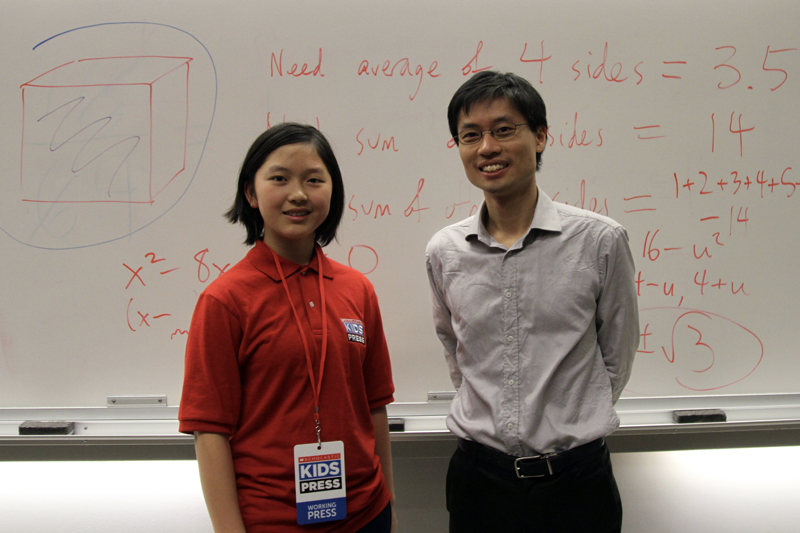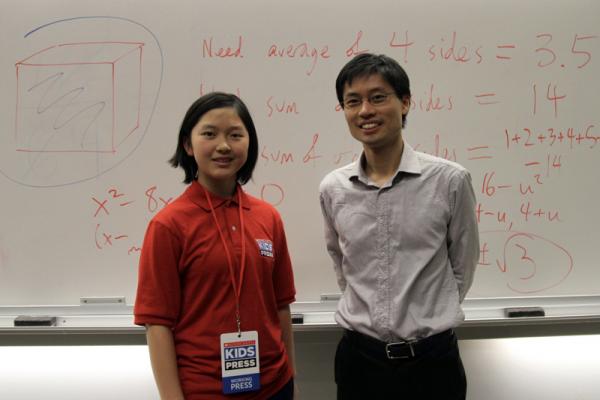KID REPORTERS’ NOTEBOOK
Inside the International Math Olympiad


Before the pandemic, mathematician Po-Shen Loh visited North Carolina, where Teresa spoke with him.
Most kids love to compete, whether it’s in a basketball game, a spelling bee, or a chess match. But what is it like to compete in math? I asked members of the team representing the United States in the 2020 International Mathematical Olympiad (IMO) and their coaches.
In September 2020, the U.S. team earned third place in the 61st annual IMO. Because of the coronavirus pandemic, the competition was held virtually for the first time ever. Teams across the globe were challenged to do their work online.
“Among all of the experiences I had during this changed situation with online interactions and communications, working with students and preparing for the IMO was one of the greatest experiences,” said Oleksandr Rudenko, a coach for the U.S. team and a teaching assistant at Carnegie Mellon University. “Everyone was willing to put forward their best efforts to make this whole thing work.”
The students challenged themselves continually to gain the recognition they received. Gopal Goel, a homeschooled student in Portland, Oregon, woke up at 5 o'clock every morning to practice. “I was quite nervous before each test day,” he said. “But once the test started, my mind went into this hyperactive state where there’s a lot of adrenaline, and I’m very focused. And then those four-and-a-half hours each day went by very fast.” In addition to his team award in the IMO, Gopal won an individual silver medal.
Teresa talks via video with competitors Luke Robitaille (top middle) and Gopal Goel (top right), and their coaches, Po-Shen Loh (bottom left) and Oleksandr Rudenko (bottom right).
“A BEAUTIFUL LANDSCAPE”
I asked Luke Robitaille what advice he had for teens who may find the study of mathetmatics boring or difficult. “If they think math is boring, they may not know the whole beautiful landscape of math,” he said. “Math is more than plugging in numbers and formulas. In math, you can make your own formulas and solve your own problems. You could cook up whole new mathematical structures.” Luke, who is a homeschooled student from Euless, Texas, earned an individual gold medal at the IMO in 2019 and 2020.
Po-Shen Loh, a coach of the U.S. team and a professor of mathematics at Carnegie Mellon, said that students who are intimidated by math might be helped by participating in an online class or community. “If you approach a class with the philosophy that you’re not only there to learn, but also to have some part of you left there, you’ll have more fun,” he said. “Building a supportive community just might help convince students to take another look at math and see an interesting subject to learn about.”
If you’d like more information about math competitions, visit the Mathematical Association of America website.
